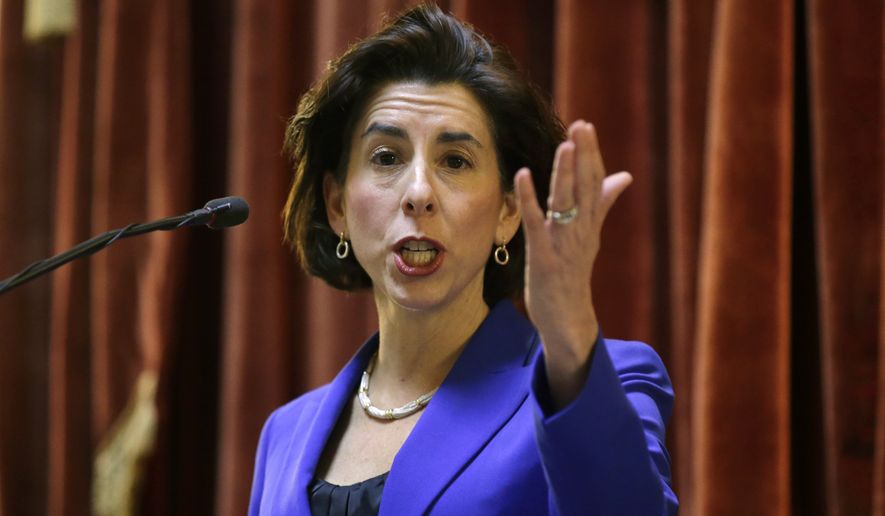
Rhode Island filed a landmark climate lawsuit Monday against the world’s largest petroleum companies, making the state the first to seek damages to cover what is says are costs of global warming in what had previously been a legal fight waged exclusively by liberal localities.
Gov. Gina Raimondo, joined by Attorney General Peter F. Kilmartin and Sen. Sheldon Whitehouse — all Democrats — made the announcement at the Narragansett Sea Wall, part of a 400-mile coastline stretch that she said makes Rhode Island “more vulnerable to the effects of climate change than any other state.”
“For a very long time, there has been this perception that ‘Big Oil’ was too big to take on, but here we are — the smallest state — taking on some of the biggest corporate polluters in the world,” Mr. Kilmartin said in a statement. “The defendants have contributed greatly to the increased costs associated with climate change and, as such, should be held legally responsible for those damages.”
The state’s “public nuisance” claim, which seeks potentially billions of dollars to cover infrastructure costs associated with an anticipated sea level rise, follows more than a dozen similar lawsuits filed by progressive communities in coastal areas of California, New York and Washington, as well as in landlocked Colorado.
Rhode Island’s action raised speculation that other Democrat-led states may turn to the legal system to strike a blow against the oil and gas industry in the name of climate change, much as they did in 2016 with AGs United for Clean Power, a 17-state coalition that sought to pursue petroleum companies and their defenders.
That effort led to ongoing climate fraud investigations by New York and Massachusetts against Exxon Mobil as well as accusations that liberal state prosecutors had abused their public authority by targeting political foes.
Rhode Island’s move surprised industry onlookers in at least one respect: The lawsuit was filed a week after the strategy was dealt a major defeat when a federal judge threw out climate change complaints lodged by San Francisco and Oakland, California, against the five largest investor-owned oil companies.
U.S. District Court Judge William Alsup cited the “worldwide positives of the energy” versus the much-debated role of fossil fuels in causing global warming, concluding that the issue was best addressed by the executive branch, diplomatic community and Congress.
“Those dangers are worldwide. Their causes are worldwide. The benefits of fossil fuels are worldwide,” Judge Alsup said in his ruling. “The problem deserves a solution on a more vast scale than can be supplied by a district judge or jury in a public nuisance case.”...
In March, another judge moved lawsuits filed by three California jurisdictions — San Mateo and Marin counties, and Imperial Beach — back to state court in what was seen as a victory for cities and counties seeking to have the cases reviewed under more favorable state law.Other communities with pending climate lawsuits include New York City;
